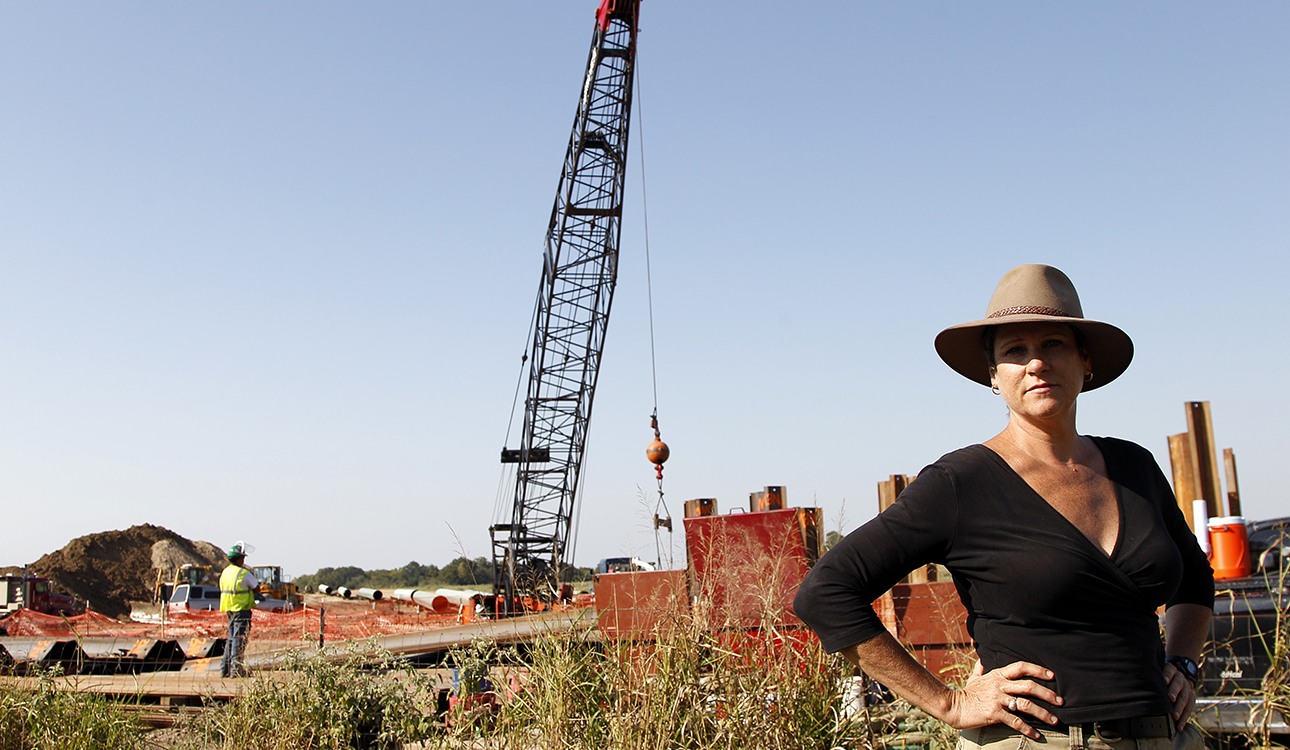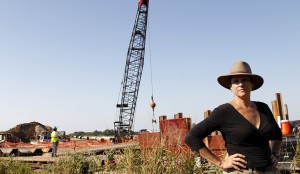

Associated Press
By Ramit Plushnick-Masti
Associated Press
SUMNER — Oil has long lived in harmony with farmland and cattle across the Texas landscape, a symbiosis nurtured by generations and built on an unspoken honor code that allowed agriculture to thrive while oil was extracted.
Proud Texans have long welcomed the industry because of the cash it brings to sustain agriculture, but also see its presence as part of their patriotic duty to help wean the United States off “foreign” oil. So the answer to companies that wanted to build pipelines has usually been simple: Yes.
Enter TransCanada.
As the company pursues construction of a 1,179-mile-long cross-country pipeline meant to bring Canadian tar sands oil to South Texas refineries, it’s finding opposition in the unlikeliest of places: oil-friendly Texas, a state that has more pipelines snaking through the ground than any other.
In the minds of some landowners approached by TransCanada for land, the company has broken the code.
Nearly half the steel TransCanada is using is not American-made and the company won’t promise to use local workers exclusively; it can’t guarantee the oil will remain in the United States. It has snatched land. Possibly most egregious: The company has behaved like an arrogant foreigner, unworthy of operating in Texas.
To fight back, insulted Texas landowners are filing and appealing dozens of lawsuits, threatening to further delay a project that has already encountered many obstacles. Others are allowing activists to go on their land to stage protests. Several have been arrested.
“We have fought wars for it. We stood our ground at the Alamo for it. There’s a lot of reasons that Texans are very proud of their land and proud when you own land that you are the master of that land and you control that land,” said Julia Trigg Crawford, who is fighting the condemnation of a parcel of her family’s 650-acre Red’Arc Farm in Sumner, about 115 miles northeast of Dallas.
Oil and agriculture have lived in peace in part because a one-time payment from a pipeline company or monthly royalties from a production rig can help finance a ranch or farm that struggle today to turn a profit from agriculture. The oil giants also respected landowners’ fierce Texas independence, even sometimes drilling in a different yard or rerouting a pipeline to ensure easy access to the minerals below.
TransCanada is different. For one, it has more often sought and received court permission to condemn land when property owners didn’t agree to an easement.
“This is a foreign company,” Crawford said. “Most people believe that as this product gets to the Houston area and is refined, it’s probably then going to be shipped outside the United States. So if this product is not going to wind up as gasoline or diesel fuel in your vehicles or mine then what kind of energy independence is that creating for us?”
While using foreign steel for a U.S. pipeline and condemning land is not all that unusual, Keystone XL has been so controversial nationally — sparking protests in Washington, Nebraska and other states, and even getting a mention in the presidential debate on Tuesday — that it may have given Texans the push they needed to fight.
TransCanada’s pipeline, some landowners say, is more worrisome than those built by other companies because of the tar sands oil the company wants to transport. They point to an 800,000-gallon spill of mostly tar sands oil in Michigan’s Kalamazoo River in 2010.
It took Enbridge, the company that owns that pipeline, 17 hours to detect the rupture, and the cleanup is incomplete.
With a pipeline, landowners give up control of the land for a one-time check, risking a spill that could contaminate their land or water for years. It’s a risk many are willing to take in exchange for cash — to a point.





